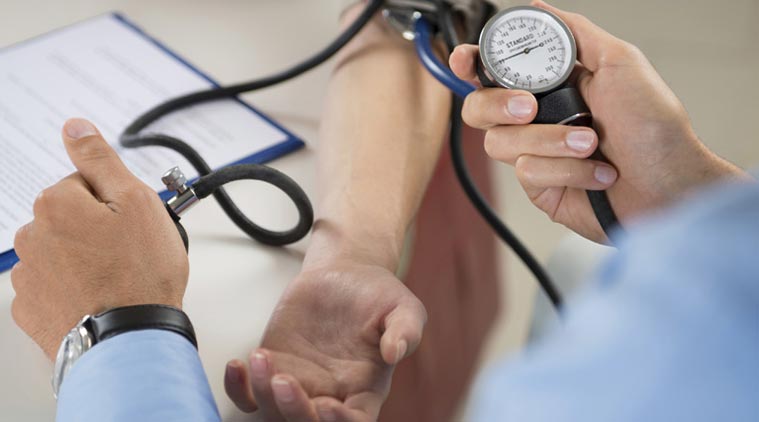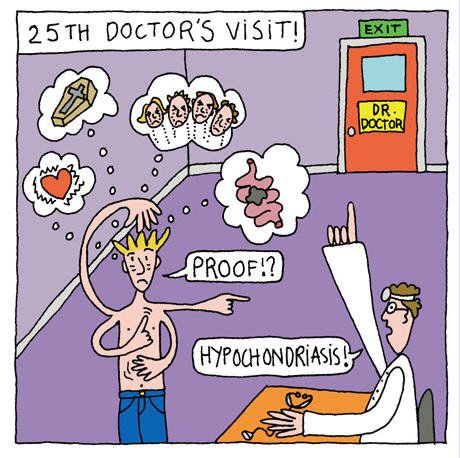The reverse placebo effect - Is going to the doctor making you sick?
We've all heard about the placebo effect – a patient starting to feel better after being given pills with no therapeutic effect, while being told they're real drugs. It's all in the mind. What I've been wondering for some time is the exact opposite – can a visit to the doctor actually make you sick?
There are several studies documenting this reverse psychological process and the more you interact with the medical system the more health issues appear.

I'm sure you must know of a person who seems to be plagued by medical problems, always going to the doctors, repeated stays in the hospital and they never seem to get better. At some point you start suspecting they're faking it and that the only thing they're suffering from is the Munchausen syndrome – pretending to be ill just to get attention and compassion. Truth is they're not faking it and there are psychological as well as physiological reasons for their deteriorating health.
The dangers of the annual check-up
The annual check-up many people have come to consider a must is one of the first steps on this dangerous path. In many cases people have to take time off to visit the doctor and since their taking the trouble they feel they should make the most of it. This goes especially for generally healthy people. Since you pay for insurance and taxes you feel like you're owed some attention. Have the doctors work a bit for the money they're getting.
In this frame of mind, people tend to amplify minor problems, they might have ignored otherwise. Since you're there, why not ask the doctor about it? Unfortunately, most doctors have no qualms ordering unnecessary tests so you end up investigating health issues that would have gone away on their own. (I have a friend who spent one year investigating a mild discomfort in the right side, that no doctor was able to figure out. They just kept sending her from one specialist to another and doing all sorts of tests until the pain disappeared on its own.)
Another danger of the annual check-up, which by the way does little as far as prevention is concerned, is that the doctor might prescribe some medicine for whatever minor issue shows up. It is a well-known fact that doctors are financially motivated to prescribe all sorts of (expensive) drugs. Something for hypertension, gastric reflux, arthritis, there's a pill for anything. According to one study, 25% of the drugs currently in use are unnecessary and many cause side-effects that damage your otherwise healthy organs.
Becoming a hypochondriac

The Post Hospital Syndrome

The worst case, however, is being admitted to hospital, for whatever reason. You will, presumably, be cured of that original problem, but chances are you'll be going back to the hospital pretty soon. The figures are staggering – in the US one fifth of the patients are re-admitted in a month, generally for a different problem. It has been dubbed the Post Hospital Syndrome (PHS) and it is both physiological and psychological.
There's a simple explanation to it. Spending a few days in hospital is very stressful. There's a complete change of routine, you have to sleep when you're told or be awaken at night for a quick check-up or a shot. The food is usually unpalatable and the patient is often told to fast in preparation for a test that ends up postponed. Skipping one meal or two might seem a trivial concern but it adds to the stress and most people are malnourished while in hospital.
A major psychological issue is the patronizing way patients are treated. You're no longer a person but a case. A Romanian doctor started an awareness campaign about this problem after becoming a patient herself, which allowed her to experience the hospital routine from a patient's perspective. From having to wait in bed for the mighty, busy doctor to make the rounds to the indignity of being referred to not by name, but as 'the girl with the rare cancer'.
Such an experience takes its toll on a person's body and mind and the first few weeks after being discharged, they're left with a weakened immune system, which explained the high rate of re-admissions.
Although the re-admissions rate is lower in the UK, doctors there have started a program to improve the way patients are treated. The first change made – have the doctors show some respect by introducing themselves to the patient, hence the campaign hashtag #hellomynameis. Some hospitals have also provided foldable chairs on the wards, so the doctor can sit down even for a few minutes to talk to the patient, acknowledging the fact that they're persons, not just cases.

Thanks for reading

It is even more insidious then you have imagined.
As you seek, so shall you find.
This is a universal law.
And what are doctors looking for? Healthy people?
What they are looking for is something that needs to be cured. And, if they look long enough they will find it. (if it wasn't there in the first place, it will suddenly appear)
Current medical professionals only look at one layer of the body. (physical) They begrudgingly think that another layer might be important. (emotional) But there are seven layers to the body. And if you don't know about them, or "disbelieve" they are there, then it is really hard to heal someone.
So, doctors are making people sick.
The healthcare industry destroys health.
Doctors are like the fourth leading cause of death in The US.
Hmmm......... I'm ff to the doctor for my annual checkup this week.
I'll see if that makes me sick or not hehe.
I go each year to benchmark stuff. I find it useful. And this year I have some specific questions to ask him.
My doctor is really cool in that he doesn't prescribe pills if he thinks there is a better way. He really listens and is quite helpful.
If i get sick afterwards though, I'll come pack to your post and let you know ;-)
Well, it depends on the patient's state of mind, too. If you have a positive attitude in life, chances are you'll be fine :))
My state of mind is usually....... slightly nutty. So maybe that protects me ;-)
Wow, thanks for the post, and something I have thought about with my dad ( he died a few years ago.)
I saw the toughest men I have ever met in my life go through this.
We were from a farming family - I walked into the kitchen while my dad sewed his own thumb back together - literally with needle and thread - before then going back to do some work.
I mean a really tough person.
In 7/8 years he went to popping pills, ( he was never ill before) check ups, and finally a spiral into dying.
I knew this to be the case! I fucking KNEW there was something wrong with this paradigm..
thank you.
Thank god I can't afford to see a doctor.
Great Post and so true, there is a time and place to visit a doctor and check-ups every few years are not bad but you need to go in there with a different mindset, a sceptical one almost.
Very good article! I also think it is actually true !
Thank you for sharing. I had an experience with the hospitals (I live in Romania so I know how people are treated here) and it was not such a nice time. After I finished my experience (they were actually two surgeries) I had to continue making some blood tests in order to make sure that everything is okay. Now, reading your article, I can say that I am glad that I did not got used to going to hospitals, It would have been much worse. Thanks for sharing, the article was very interesting and the words of wisdom at the end of it by Terry were pretty good, but unfortunately sad...